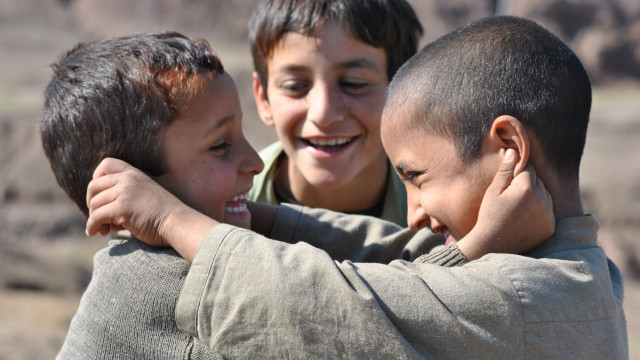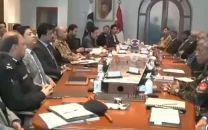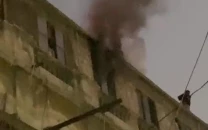We need trauma sensitive schools in Pakistan
Experiences of serious injuries and death of loved ones can put a child under stress

PHOTO: REUTERS
PTI concerned over growing number of children kidnapped or missing
In Pakistan, a leading cause of childhood trauma is poverty. Increasing violence in society and use of addictive substances by parents may also cause psychological damage over time. Traumatic stress in children also extends to their personal experiences, such as physical or sexual abuse, bullying and neglect. Experiences of serious injuries and death of loved ones can put a child under stress, making them believe they are vulnerable to further injuries or, in severe cases, death, turning ‘danger’ into trauma. The reason why we fail to get across to such children is that we only use tried and trusted teaching methods, instead of adopting an altogether different approach.
One size doesn’t fit all
In a learning environment such as schools, affected children often lag behind their peers as trauma negatively affects their behaviour and learning abilities. They are unable to pay attention in class, interact with their peers and facilitators, and control their emotional responses. As a result, they are often labelled as misbehaving students by teachers incapable of connecting with them emotionally.
“We lack a structure to address these problems in schools. There are educational institutes equipped to meet health and physical activity needs of growing children but none of them have a social counsellor for psychological help,” says Dr Asma Makhani, a child psychologist currently involved with early childhood education projects. “And just a social counsellor being there is not enough. There needs to be a separate department which engages teachers and other facilitators who come directly in contact with children.”
Pak-Turk schools: Parents unsure of what their children’s future holds
The idea is to understand exactly what a child is going through. Let’s say a child is living in very poor conditions and is deprived of basic needs. It goes without say that this child would feel inferior to other children in his/her class who can perhaps afford fancy stationary. This could end up in bullying and fights, with these children being punished for their offences. While it is right to teach them about consequences of violent behaviour, the situation can be dealt with in a number of different ways. It can be useful to remember that every reaction of a teacher will have a great impact on the child.
But the solution isn’t as simple as changing your behaviour towards these students. Dr Makhani explains there should be a proper system in each school. “When a teacher finds a student suffering from some form of trauma, they need to contact the school’s social counsellor. These trained professional are more capable of reaching out to traumatised students and learning about their ecology and family dynamics. With a better understanding of the problem, they can decide on an individual plan to help each student. This may include clinical counselling as well,” she explains.
Police rescue 26 children, including 14 reported kidnapped
We need to evaluate our methods and policies to see what works and what doesn’t. While strategies usually involve school staff and require a collaborated approach, involvement of parents is also necessary. However, it may be difficult to get parents on board in most communities for a number of reasons. For one, parents themselves are often riddled with trauma and stress due to financial burdens. Some, on the other hand, are just not interested in taking part in their child’s learning, believing the school is fully responsible for their education.
A major step towards solving this issue can be an introduction of policies at the government level, necessitating the inclusion of counselling at both public and private schools. Training programmes to assist teachers and educators in understanding these students as well as developing learning strategies for their successful integration in academics should, hence, be a top priority.
TOOL BOX
Developing trauma sensitivity: Trauma and Learning Policy Initiative (TLPI) in Massachusetts, United States, strives to create trauma sensitive schools. They realise trauma in children can severely impact their education and are working to build an environment where learning can thrive. TLPI and several other institutes around the world are working on strategies to provide individual support to trauma affected children. Some basic strategies they use for this purpose include:
Ensuring safe environment: Traumatised children have very sensitive emotional responses and even the smallest trigger can make them feel threatened. They need to feel physically, mentally and emotionally safe in schools, and with their teachers and facilitators. This will allow them to be comfortable and more willing to work on their academic lacking, if any.
Identify individual potentials: When a child feels safe, they will tell you more about their abilities than you would otherwise know. However, this will not always be ‘spelled out’ for a teacher. The educators need to pay attention; some children are good with drawing and others take more interest in sports. Irrespective of what their skills are, encouraging them to improve it can motivate them to be academically more involved. A holistic approach where you focus on different forms of learning should be adopted.
Provide more opportunities for interaction and learning: Traumatised children lack strong relationships. Arranging activity days, sports competitions, music classes and other creative forums will allow them to interact with peers and facilitators. It will also encourage them to learn new things, satisfying a sense of achievement.
Adopt a personalised approach: One thing a teacher should never do is to loop traumatised students together with other kids. Educators need to understand overcoming trauma is a slow process and every child will respond differently, some children may need clinical support. However, there also needs to be an individual plan for every student.
Kanwal Tariq is a bio-technologist, a writer and a feminist.



















COMMENTS
Comments are moderated and generally will be posted if they are on-topic and not abusive.
For more information, please see our Comments FAQ